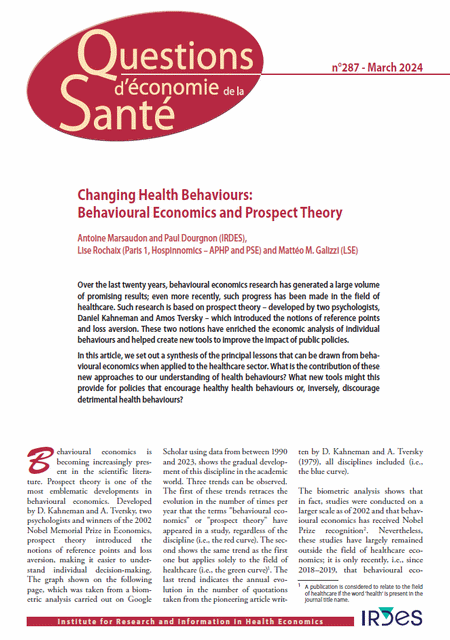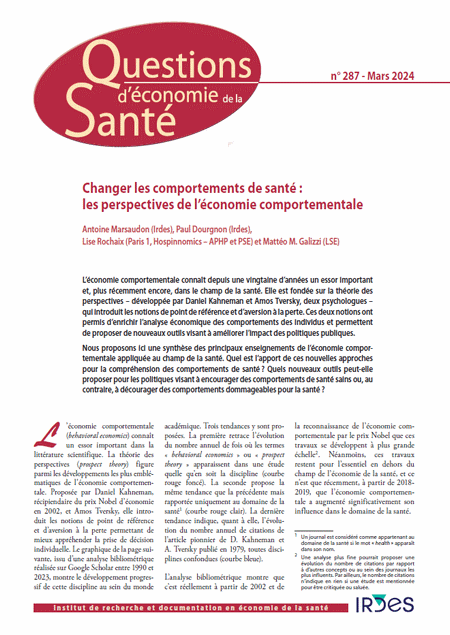Changing Health Behaviours: Behavioural Economics and Prospect Theory
Marsaudon A., Dourgnon P. (IRDES), Rochaix L. (Paris 1, Hospinnomics - APHP and PSE) and Galizzi M.M. (LSE)
Questions d'économie de la santé (Issues in Health Economics) n° 287 - March 2024
ABSTRACT
Over the last twenty years, behavioural economics research has generated a large volume of promising results; even more recently, such progress has been made in the field of healthcare. Such research is based on prospect theory - developed by two psychologists, Daniel Kahneman and Amos Tversky - which introduced the notions of reference points and loss aversion. These two notions have enriched the economic analysis of individual behaviours and helped create new tools to improve the impact of public policies. In this article, we set out a synthesis of the principal lessons that can be drawn from behavioural economics when applied to the healthcare sector. What is the contribution of these new approaches to our understanding of health behaviours? What new tools might this provide for policies that encourage healthy health behaviours or, inversely, discourage detrimental health behaviours?
See also Questions d'économie de la santé n° 287 in French: Changer les comportements de santé : les perspectives de l'économie comportementale

